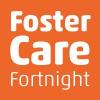Education: Helping young people succeed
Yvonne Kielt is a development worker for the Fostering Achievement scheme in Northern Ireland and in this blog describes how she has seen the positive influence the programme has had.
I have been working on the Fostering Achievement scheme since May 2008 providing practical support to foster carers and kinship carers to help their children and young people achieve their potential and improve educational outcomes.
Research shows that success in education, more than anything else, determines whether a young person who has been looked after has a fulfilling adult life. Many children and young people in care do not receive a successful learning experience and some need a level of support which is unable to be delivered in the context of a full classroom. Without an individualised approach it is often very hard for these children and young people to realise their full potential. It is for this reason that looked after children have been identified as a group who would benefit from educational support – and this can be provided to them through the Fostering Achievement scheme.
Each year I receive applications for over 200 children and young people from foster and kinship carers. When I speak to foster carers about the young people they look after I am keen to find out whether they are reaching a level appropriate to their age and ability, where they are in relation to their peers, if they have a statement of special educational need, what their interests include and what their strengths and weaknesses are. The resources I recommend will be based on my assessment of the young person’s needs in partnership with their carer.
Through the Fostering Achievement scheme we are able to offer young people a wide range of learning resources which they can use at home to reinforce what the young person has covered at school. As well as these resources we are able to offer one to one tuition which can be started in a very short space of time as and when required. I work closely with schools to ensure the young person gains maximum benefit from their lessons and we always try to accommodate their changing needs as and when they arise.
Many young people have benefitted over the lifetime of the scheme from one-to-one tuition at home. One young person I worked with, Nicole, completed GCSE modules in summer 2015 and obtained A – C grades in all her subjects except maths. Nicole wanted to do better in her maths and her foster carer asked got in touch to see what support we could offer. I arranged for Nicole to start one to one tuition in September 2015 and her tutor could immediately see her potential. She encouraged Nicole not to be afraid to ask for help regardless of how many times she had covered a topic – this one to one support gave Nicole confidence in her own ability and worked incredibly hard with her during her GCSE year. As a result of the tuition Nicole reached her goal – she received a C in GCSE Maths and is continuing in education.
To say I am proud of each young person’s achievements however big or small is an understatement and I cannot recommend highly enough what a little one to one help can do for a young person to help them succeed.





